Educating Sommeliers Worldwide.
By Beverage Trade Network
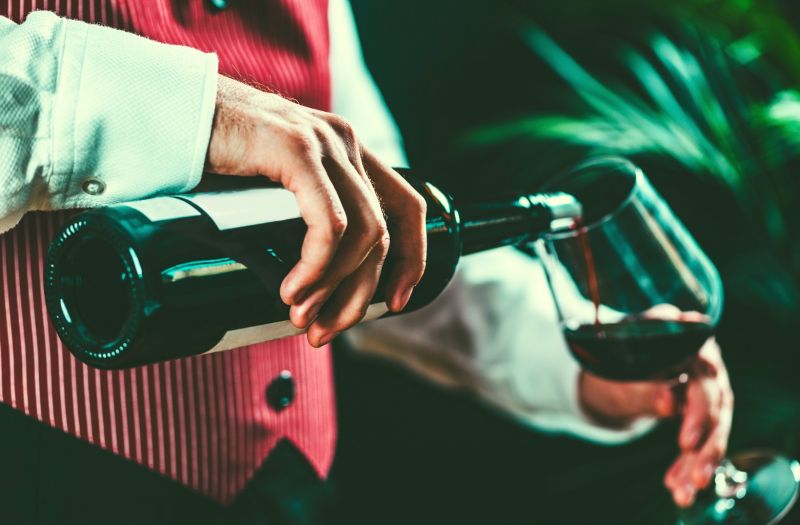
The world of wine and fine dining is undergoing a quiet revolution. As consumers embrace wellness, moderation, and mindful consumption, the rise of no and low-alcohol (NoLo) beverages is reshaping the modern dining experience. The once alcohol-driven narrative is now making room for a new kind of craft, one where flavor, story, and intention matter more than alcohol content. In this changing landscape, sommeliers are uniquely positioned to lead. Traditionally seen as wine experts, today’s sommeliers are evolving into broader custodians of the liquid experience. This article explores how sommeliers adapt, innovate, and redefine hospitality through the NoLo movement's lens.
The NoLo category in the United States is no longer a fringe market. According to the IWSR Drinks Market Analysis, the pace of growth of the no/low-alcohol category in the U.S. is expected to surpass that of the previous four years, with a forecasted volume CAGR of +7% from 2022 to 2026. No-alcohol products are expected to drive this growth, accounting for over 90% of the total category increase, with volumes projected to grow at a CAGR of +9% during the same period. What was once limited to "mocktails" and NA beer has evolved into a dynamic category including dealcoholized wines, zero-proof spirits, botanical sodas, and adaptogenic beverages.
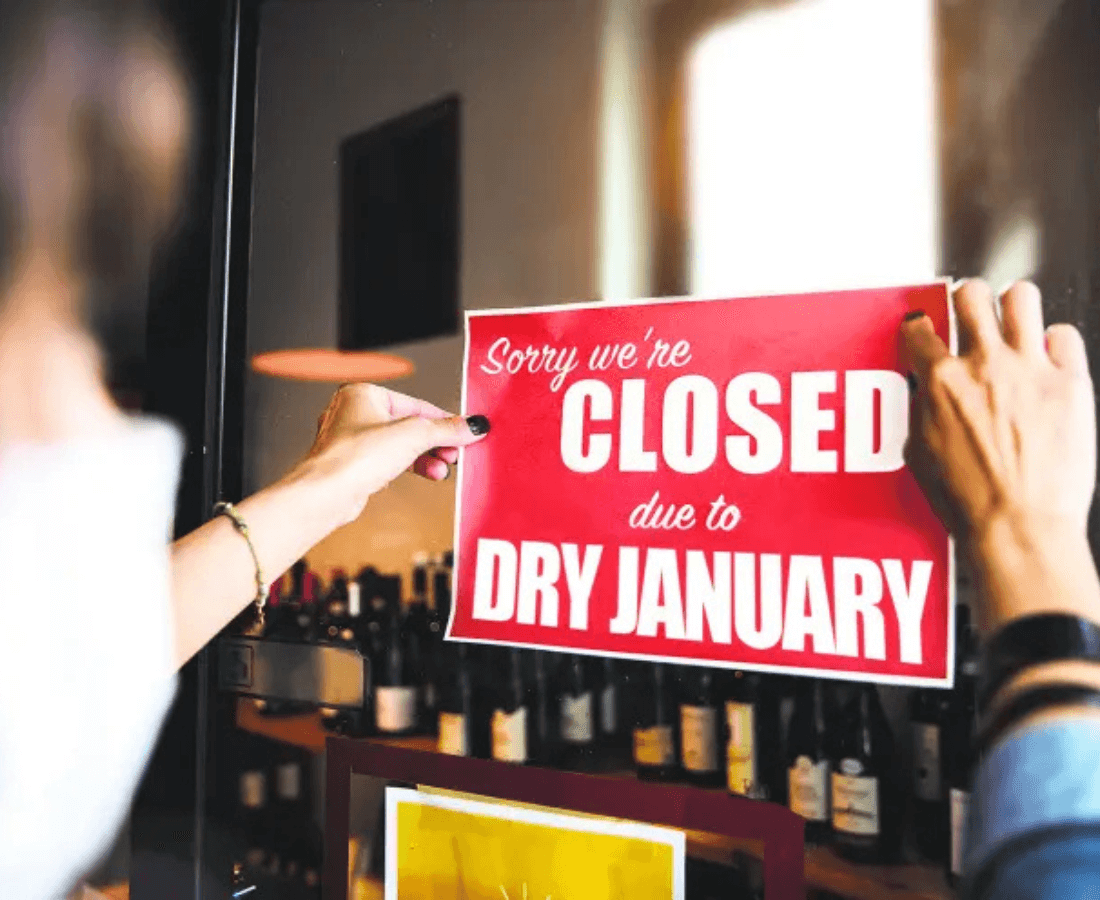
Source: New York Post
Several cultural forces are driving this change. Dry January and Sober October have entered the mainstream, with millions of Americans participating annually. The "California sober" lifestyle, which embraces mindful drinking or complete abstinence, is especially popular among Gen Z and millennials. Wellness-focused diners increasingly seek moderation, not out of restriction, but as a conscious lifestyle choice.
Meanwhile, premium NoLo brands such as Athletic Brewing Co., Surely, Ghia, Kin Euphorics, and De Soi elevate the category, proving that complexity and craftsmanship can exist without alcohol. These brands are appearing not only on retail shelves but also on curated restaurant lists and fine dining pairings.
Despite the category’s growth, many sommeliers face an uphill challenge. Their training and certification pathways are deeply rooted in the world of traditional alcoholic wine. As a result, many professionals lack the frameworks, vocabulary, or even the interest to engage seriously with NoLo beverages.
There is also an internal conflict within the hospitality industry. Some sommeliers question the authenticity of de-alcoholized wine or botanical-based alternatives. Are these truly beverages worthy of a sommelier’s attention, or simply health fads with short shelf lives? Others worry that embracing NoLo could dilute their craft or diminish the perceived value of their wine programs. However, forward-thinking sommeliers are beginning to see the shift not as a threat but as an opportunity, a way to future-proof their role, enhance guest experience, and expand their influence in a changing beverage culture.
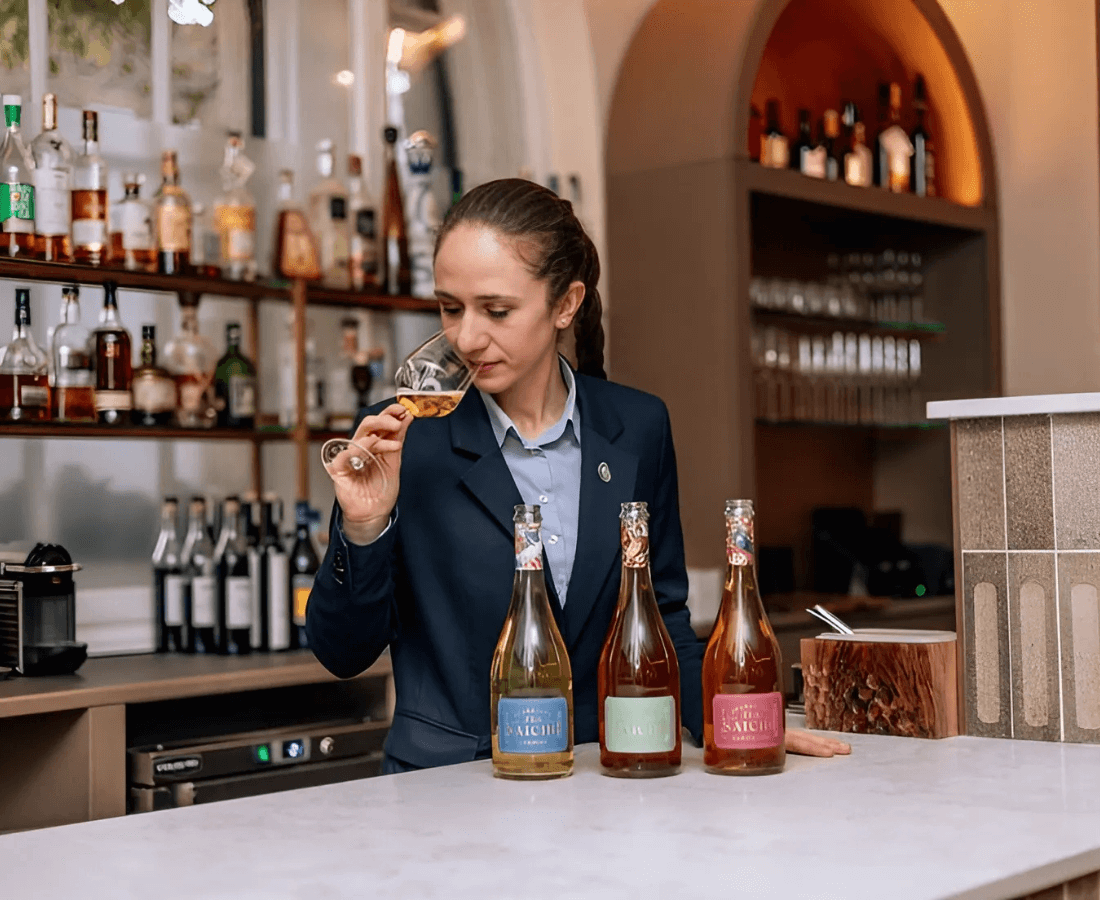
Source: Sommelier Edit
The NoLo movement requires sommeliers to broaden their technical and sensory repertoire. Understanding how a wine is de-alcoholized is now just as important as knowing the difference between barrique and tonneau aging. Technologies like spinning cone columns, vacuum distillation, and reverse osmosis are key to modern NoLo wine production. Each method impacts flavor, mouthfeel, and aromatic retention differently, and sommeliers who understand these can better evaluate and communicate quality.
Sensory training is also evolving. Without alcohol to amplify aromatics or enhance structure, NoLo beverages demand a more nuanced assessment of acidity, bitterness, texture, and complexity. Sommeliers are learning to identify flavor layers in ingredients like gentian, hibiscus, and yuzu, which feature prominently in modern non-alcoholic spirits and spritzes. Beyond tasting, the sommelier’s role now includes expertise in functional drinks, from CBD-infused seltzers to adaptogenic tonics with reishi or ashwagandha. These offerings reflect a new definition of luxury and self-care that sommeliers must understand to remain relevant.
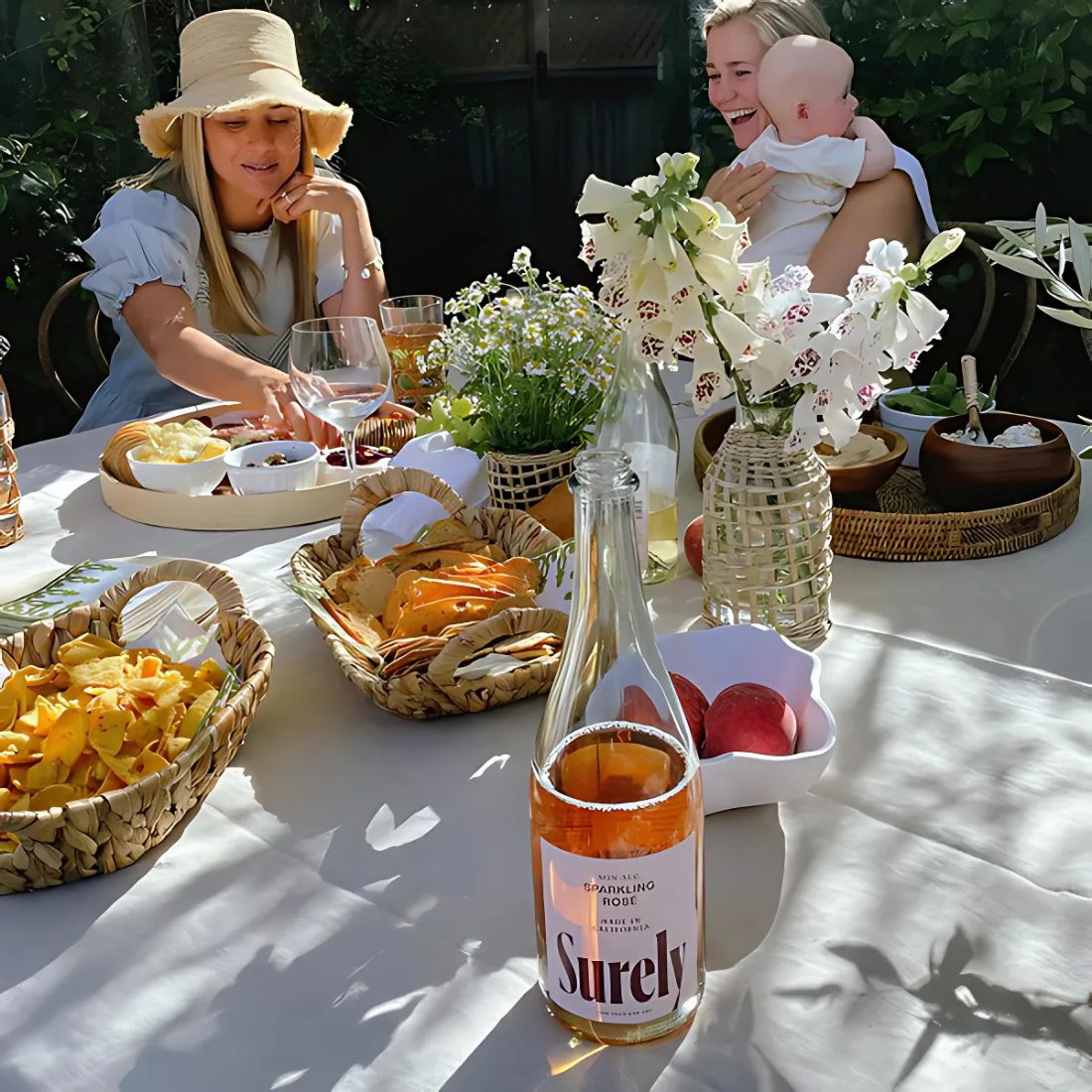
Source: Surely
Pairing beverages with food is central to the sommelier's role, and NoLo opens a new world of creative possibilities. Without alcohol's weight and warmth, sommeliers are exploring new structural elements such as acidity, carbonation, spice, bitterness, and mouthfeel. Take kombucha, for example. Its natural acidity and subtle funk make it a superb partner for pork belly or aged cheese. Ghia’s bitter herbal blend pairs beautifully with charred vegetables or lamb with sumac. Surely’s dealcoholized rosé, with its delicate strawberry and citrus notes, is a strong match for ceviche or seared scallops.
The classic pairing principles still apply, like contrast, complement, and intensity matching, but with a new lens. Sommeliers are working closely with chefs to develop NoLo pairings that not only work but wow. The best programs consider mouthfeel, temperature, and flavor progression throughout the meal. Fine dining venues are getting on board with the trend by offering thoughtful non-alcoholic pairings, offering elaborate non-alcoholic pairings that include clarified juices, fermented tea blends, and broth-based infusions. These programs are often developed in-house with the same creativity as wine pairings, proving that complexity and depth don’t require alcohol.
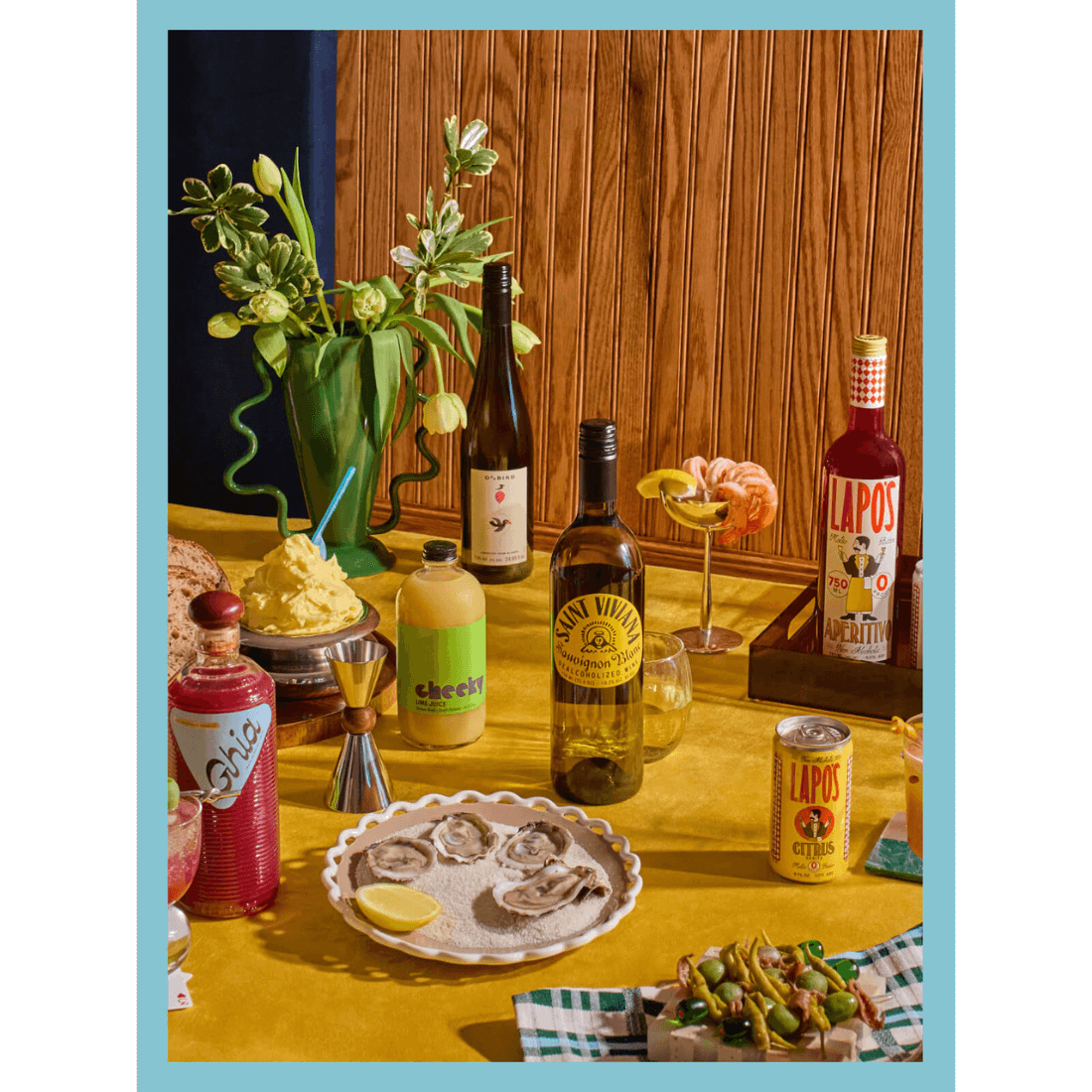
Source: The Zero Proof
Curation is key. Sommeliers looking to build a NoLo program must consider structure, storytelling, and variety, just as they would with a wine list. One of the first decisions is placement: integrate NoLo options alongside wines and cocktails, or create a dedicated zero-proof section? Integration often signals parity and inclusion, while a dedicated section can allow for deeper exploration.
Strong NoLo lists include:
- NA Wines: Leitz, Surely, Ariel, Sovi, Studio Null, Noughty
- Aperitifs & Spirits: Ghia, De Soi, Wilderton, Drink Monday, Optimist, For Bitter For Worse
- Craft Beers: Athletic Brewing, Lagunitas IPNA, Bravus, Partake, Rightside Brewing, Surreal Brewing
- Botanical & Functional Drinks: Kin Euphorics, TÖST, Curious Elixirs, Hiyo, Recess, Three Spirit, Mad Tasty
Collaborations with bartenders can result in house-made shrubs, bitters, and tea-based concoctions. These elevate the experience and give guests something they can’t find elsewhere. Sommeliers must also liaise with beverage reps and distributors who are expanding their NA portfolios in response to demand.
How we talk about NoLo drinks matters. Language can influence guest perception, engagement, and purchase decisions. Sommeliers play a central role in making the guests feel seen and valued, regardless of their choice to drink alcohol. Avoid diminishing terms like "mocktail" or "just water." Instead, use language that highlights craft and intention: "zero-proof cocktail," "botanical pairing," and "spirit-free spritz." Sommeliers should guide guests through the NoLo menu with the same enthusiasm and depth as the wine list. A well-timed recommendation or thoughtful pairing can transform the experience. Proper glassware, beautiful garnishes, and precise service ensure these drinks feel special. More importantly, NoLo should never feel like a compromise. Whether a guest is pregnant, sober, training, or simply doesn’t feel like drinking, every drink served should deliver hospitality, not hierarchy.
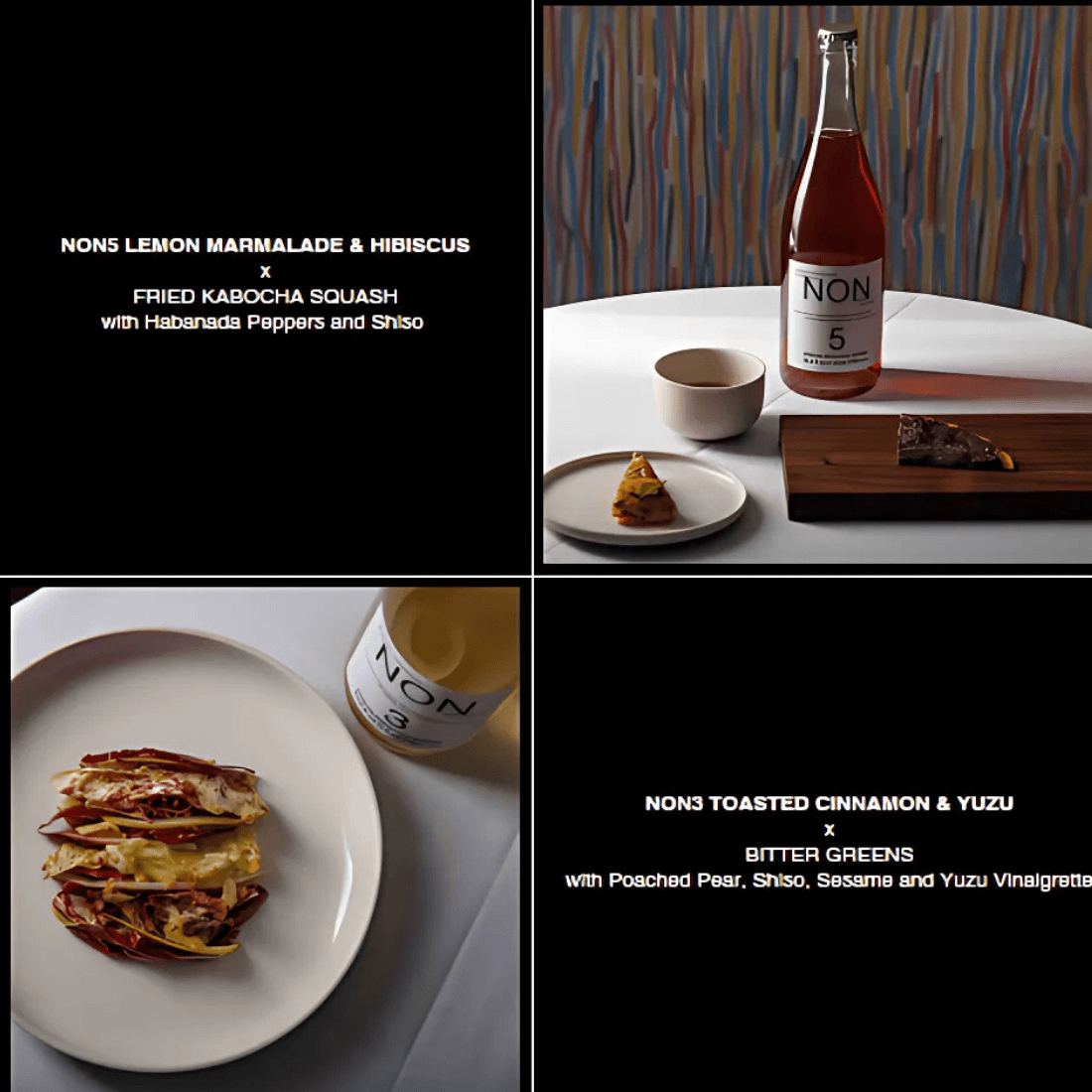
NON x Eleven Madison Park; Source: NON
Several leading restaurants are proving that NoLo and fine dining are not mutually exclusive.
- Eleven Madison Park, NYC: Their acclaimed non-alcoholic pairing menu features seasonal juices, infusions, and broths. It was developed by the sommelier team in partnership with the kitchen to mirror the complexity of their wine list.
- Bar Nonnina, Chicago: Offers in-house zero-proof amari and botanical concoctions that rival traditional digestifs.
- The French Laundry, Yountville: Their NoLo offerings include curated tea pairings and kombucha flights, elevating the guest experience beyond traditional boundaries.
Sommeliers in these venues are leading a new chapter in service, demonstrating that NoLo programs can be just as luxurious, expressive, and profitable as their alcoholic counterparts.
The NoLo movement is reshaping what it means to be a sommelier in the U.S. today. Beyond wine knowledge, the role now encompasses a wider understanding of flavor, craft, and cultural shifts. As certification bodies like WSET and the Court of Master Sommeliers begin to acknowledge non-alcoholic trends, new modules, exams, and standards may reflect a broader beverage universe. This evolution positions sommeliers as liquid experience curators, experts not just in wine but in all things that elevate the dining journey through taste, texture, and storytelling. Sommeliers who embrace this shift are poised to lead a more inclusive, innovative, and dynamic era of hospitality.
The NoLo movement marks a pivotal shift in how consumers view social connection, indulgence, and wellness, offering an exciting new chapter for the sommeliers. Rather than diminishing their role, it enhances it, providing a broader platform to showcase hospitality, creativity, and product knowledge. Sommeliers are no longer confined to wine, they are becoming stewards of an expanding universe of sophisticated, health-conscious, and thoughtfully crafted beverages. From CBD-infused tonics and botanical spritzes to dealcoholized wines and adaptogenic elixirs, the NoLo category is rich with storytelling potential and pairing possibilities. When approached with the same rigor and enthusiasm as traditional wine programs, these offerings create meaningful, inclusive experiences for guests who choose not to drink alcohol, whether temporarily or permanently. In doing so, sommeliers elevate the entire beverage program and reinforce their essential role in shaping modern dining culture. The glass may be free of alcohol, but it’s full of opportunity.
Header image source: On In London
Also Read:
The Rise Of Low-Abv Reds: Why Lighter Wines Are Taking Over In 2025
Mindful Drinking and the Future of No/Low Alcohol: A Conversation with Derek Brown
The Rise and Rise of Mindful Drinking: Non-Alcoholic Beverages Take Center Stage